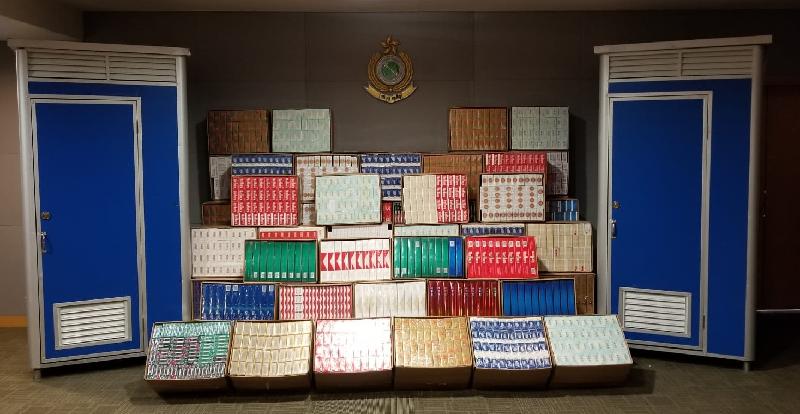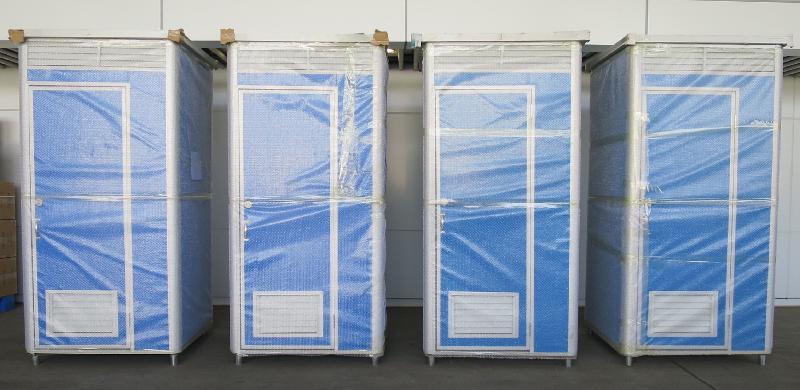Public and travellers urged to guard against infectious diseases during Lunar New Year holiday
The Centre for Health Protection (CHP) of the Department of Health today (January 25) reminded the public of the high level of activity of seasonal influenza (SI) locally and in neighbouring areas. Travellers should practise strict hand, personal, food and environmental hygiene to guard against SI and some common and travel-related infectious diseases in the Lunar New Year holiday.
A. Seasonal Influenza
According to the latest surveillance data, the positive percentage of SI viruses among respiratory specimens received by the CHP continued to increase, from 25.29 per cent in the week ending January 12 to 29.69 per cent the following week. The local seasonal influenza activity may continue to rise further and remain elevated in the period ahead.
Globally, influenza activity remained high in the temperate region of the northern hemisphere with predominance of influenza A(H1) virus. The winter influenza season is underway in the United States, Canada, a number of European countries including the United Kingdom, and our neighboring areas including Korea, Japan, Mainland China, Macao and Taiwan.
Of note, the influenza activity in Japan has reached a high level, with the average number of reported influenza-like illness cases per sentinel site increased markedly from 16.30 in the first week of January to 38.54 in the second week.
The CHP strongly urged the public, in particular children, people aged 50 to 64 years, the elderly and those with underlying illnesses who have not yet received influenza vaccination this season are urged to get vaccinated as early as possible to prevent seasonal influenza as it takes about two weeks for antibodies to develop in the body after vaccination. Medical advice should be sought promptly if influenza-like symptoms develop so that appropriate treatment can be initiated as early as possible to prevent potential complications.
B. Travel-related infectious diseases
- Dengue Fever
From January 18 to yesterday (January 24), the CHP recorded one imported dengue fever (DF) case. The patient had been to Indonesia during the incubation period.
As of yesterday, 12 cases had been confirmed this year, all of which were imported cases. The cases were mainly imported from Indonesia (two), Malaysia (two), Maldives (two), the Philippines (two) and Thailand (two).
DF remains endemic in some areas of Asia and beyond. The latest figures for 2019 revealed that 1 679 cases had been recorded in Thailand, 822 cases in Singapore (since December 30, 2018) and 15 in Japan. In the Americas, the latest figures indicated that 1 599 cases were filed in Mexico in 2019.
To prevent mosquito-borne diseases, travellers should wear loose, light-coloured, long-sleeved tops and trousers and apply insect repellent containing DEET to clothing or exposed parts of the body. Travellers returning from areas affected by DF and Zika virus infection should apply insect repellent for 14 days or at least 21 days respectively upon arrival in Hong Kong.
- Avian Influenza
Human cases of avian influenza continue to be reported in Mainland China. Since August 2018, four human cases of influenza A(H5N6) infection have been reported in Mainland China (two in Guangxi, and one each in Guangdong and Jiangxi). Another four human cases of influenza A(H9N2) infection have been reported in the same period (three in Guangdong and one in Guangxi). Outbreaks of highly pathogenic avian influenza A(H5) in birds and poultry have also occurred in many countries in the past few months.
“Travellers visiting the Mainland or other affected areas must avoid poultry contact and visiting wet markets, live poultry markets or farms. The public should stay alert to possible backyard poultry when visiting relatives and friends, avoid purchasing live or freshly slaughtered poultry, and avoid touching poultry or birds or their droppings. They should strictly observe personal and hand hygiene when visiting any place with live poultry,” the spokesman advised.
Whether locally or outside Hong Kong, people handling chilled poultry or poultry carcasses are reminded to observe strict personal and hand hygiene. Members of the public should never touch their mouth, nose or eyes when handling any poultry, poultry products or eggs. Afterwards, they must wash their hands thoroughly with liquid soap and water.
- Middle East Respiratory Syndrome
Regarding Middle East Respiratory Syndrome (MERS), as countries in the Middle East, particularly the Kingdom of Saudi Arabia (KSA), continue to report cases from time to time, travellers should avoid going to farms, barns or markets with camels and avoid contact with sick persons and animals, especially camels, birds or poultry.
According to the latest information, 2 279 cases have been reported to the World Health Organization (with 806 deaths), including 2 060 in 10 Middle East countries comprising 1 901 in the KSA, 87 in the United Arab Emirates, 28 in Jordan, 19 in Qatar, 11 in Oman, six in Iran, four in Kuwait, two in Lebanon, and one each in Yemen and Bahrain.
“The CHP strongly advises travel agents organising tours to the Middle East to abstain from arranging camel rides and activities involving direct contact with camels, which are known risk factors for acquiring MERS Coronavirus," the spokesman said.
- Measles and rubella
Hong Kong achieved measles elimination in 2016 and the annual reported number of measles cases has remained at a very low level in the past few years. However, measles remains endemic in many places around the world and the incidence levels in these places are much higher than that of Hong Kong.
For rubella, the outbreak of rubella in Japan that started in September 2018 is still ongoing. Although the weekly number of cases has been on a decreasing trend in the past three months, the incidence has not yet returned to the pre-outbreak level.
“Vaccination is the most effective way to prevent measles and rubella. Members of the public who are planning to travel to places with high incidence or outbreaks of measles or rubella should review their vaccination history and past medical history, especially people born outside Hong Kong who might not have received measles or rubella vaccination during childhood,” the spokesman said.
“Those with incomplete vaccination, unknown vaccination history or unknown immunity against measles or rubella are urged to consult their doctor for advice on vaccination at least two weeks before departure,” the spokesman added.
Pregnant women and women preparing for pregnancy who are not immune to measles or rubella as well as children aged under 1 year who are not due for the first dose of the measles, mumps and rubella combined vaccine under the Hong Kong Childhood Immunisation Programme are advised not to travel to places with outbreaks of measles or rubella.
C. Food poisoning
“In the festive season, food and environmental hygiene are the keys to preventing food poisoning. While some may cook for the Family Reunion Dinner and the New Year Feast, some may choose poon choi takeaway as an alternative. When collecting and transporting poon choi, make sure it is kept at above 60 degrees Celsius. Before consuming poon choi, it should be reheated thoroughly till the core temperature reaches at least 75 degrees Celsius,” the spokesman said. More information on the healthy tips for enjoying poon choi can be found on the CHP website.
When consuming party food or hot pot in gatherings, the public should consume thoroughly washed and cooked food. For shellfish, the shells should be well scrubbed and the internal organs removed before consumption. Never use raw eggs as a dipping sauce. Use different chopsticks to handle raw and cooked food to avoid cross-contamination. For more food safety tips, please visit the webpage of the Food and Environmental Hygiene Department's Centre for Food Safety.
The public may also visit the CHP's pages on seasonal influenza, dengue fever, avian influenza, MERS, measles, rubella, Zika virus infection and food poisoning for more information.

